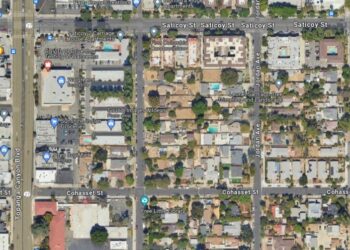LOS ANGELES, Ca. — Carrie L. Tolstedt, who was the former head of Wells Fargo Bank’s retail banking division, has agreed to plead guilty to obstructing a government examination into the bank’s widespread sales practices misconduct. According to the U.S. Attorney’s Office, Central District of California, this included opening millions of unauthorized accounts and other products.
Tolstedt, 63, of Scottsdale, Arizona, will plead guilty to one count of obstruction of a bank examination.
The Office of the Comptroller of the Currency (OCC), which investigated misconduct at Wells Fargo, also has reached a resolution with Tolstedt. Federal authorities say Tolstedt agreed to a ban from working in the banking industry and to pay a $17-million civil penalty.
“The plea agreement filed today sends a clear message that bank executives who commit fraud and deliberately deceive regulators will be brought to justice for their actions. I commend our agents and their federal law enforcement partners for their hard work and persistence, which ultimately led to this outcome,” said Mark Bialek, Inspector General for the Board of Governors of the Federal Reserve System and Consumer Financial Protection Bureau.
According to the U.S. Attorney’s Office, Central District of California Tolstedt was Wells Fargo’s senior executive vice president of community banking and was head of the Community Bank, which operated Well Fargo’s consumer and small business retail banking business from approximately 2007 to September 2016.
The Community Bank managed many products that Wells Fargo sold, including checking and savings accounts, CDs, debit cards, bill pay, etc.
Wells Fargo previously admitted that, from 2002 to 2016, excessive sales goals led Community Bank employees to open millions of accounts and other financial products that were unauthorized or fraudulent. In the process, the U.S. Attorney’s Office, Central District of California says, “Wells Fargo collected millions of dollars in fees and interest to which it was not entitled, harmed customers’ credit ratings, and unlawfully misused customers’ sensitive personal information.”
The U.S. Attorney’s Office, Central District of California says the strategies by Wells Faro included using existing customers’ identities – without their consent – to open accounts. Gaming practices included, “forging customer signatures to open accounts without authorization, creating PINs to activate unauthorized debit cards, and moving money from millions of customer accounts to unauthorized accounts in a practice known internally as ‘simulated funding.'” according to federal authorities.
The U.S. Attorney’s Office, Central District of California also says Wells Fargo’s practice “included opening credit cards and bill pay products without authorization, altering customers’ contact information to prevent customers from learning of unauthorized accounts and to prevent Wells Fargo employees from reaching customers to conduct customer satisfaction surveys, and encouraging customers to open accounts they neither wanted nor needed.”
Federal authorities say Tolstedt was aware of sales practices misconduct and she learned about the gaming practices from corporate investigations.
Although the Community Bank eventually took steps purportedly designed to proactively identify sales misconduct, federal authorities say, “measures used by the bank flagged only a small portion of the potentially problematic activity for investigation.”
As of July 2014, “only the most egregious .01 to .05 percent of employees engaging in activity considered a ‘red flag’ for sales practices misconduct were investigated – with the remaining 99.95 to 99.99 percent left unexamined under this process,” said the U.S. Attorney’s Office, Central District of California.
Tolstedt “corruptly obstructed the OCC’s examination by failing to disclose statistics on the number of employees who were terminated or resigned pending investigation for sales practices misconduct,” according to the U.S. Attorney’s Office, Central District of California.
She “also failed to disclose that the Community Bank proactively investigated only a very small percentage of employees who engaged in activity flagged as potential sales practices misconduct,” according to federal authorities.
“This plea agreement demonstrates the determination and cooperation of Postal Inspectors and our federal law enforcement partners. Postal Inspectors are committed to investigating anyone holding a position of trust in the financial system that would engage in a fraud to deceive their customers,” said Rafael Nuñez, Inspector in Charge of the United States Postal Inspection Service, San Francisco Division.
Wells Fargo in 2020 acknowledged the widespread sales practices misconduct within the Community Bank. Federal authorities say they paid a $3 billion penalty in connection with agreements reached with the United States Attorneys’ Offices for the Central District of California and the Western District of North Carolina, the Justice Department’s Civil Division, and the Securities and Exchange Commission.
Tolstedt has entered into a plea agreement that calls for a prison sentence of up to 16 months in prison.
The statutory maximum sentence for obstruction of a bank examination is five years in federal prison.
Featured image courtesy of: Wells Fargo, Public domain, via Wikimedia Commons







